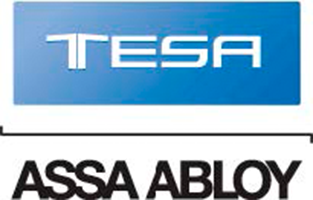Okay, so here’s the thing—if you’re like me, you didn’t just buy a hardware wallet to stash a single coin and call it a day. Nope. The crypto world is messy, sprawling, and honestly a bit wild sometimes. You want to juggle Bitcoin, Ethereum, maybe some sneaky altcoins, and don’t even get me started on tokens. Managing all that without losing your mind? That’s the real challenge.
Wow! Seriously, the first time I tried tracking a dozen different assets across separate apps and wallets, I was ready to throw my phone out the window. Something felt off about how fragmented the experience was. But then I stumbled upon hardware wallets that actually get it—multi-currency support baked in, portfolio tracking, and even compliance features that don’t make you want to scream.
Initially, I thought, “Why complicate things?” But then I realized, not all crypto is created equal, and neither are the wallets. On one hand, you want maximum security—hardware wallets deliver. Though actually, wait—let me rephrase that: security alone isn’t enough if your wallet can’t handle your entire portfolio or keep you on the right side of regulations. It’s a balancing act.
Imagine this: you’re a US user with a handful of tokens scattered everywhere. You want to keep your private keys offline but still have a clear picture of your holdings. Plus, Uncle Sam’s watching, and you don’t want to accidentally trigger a compliance nightmare. That’s where a wallet with compliance features steps in.
So, yeah, multi-currency support isn’t just a nice-to-have. It’s damn essential. And portfolio tracking? It saves you from mental exhaustion and those late-night “where the hell is my token” freakouts. But I’m getting ahead of myself…
The Beauty and Beast of Multi-Currency Support
Here’s what bugs me about some wallets: they claim “multi-currency,” but really support just a handful of big names. You try adding a niche altcoin and boom—no dice. It’s like buying a Swiss Army knife that only has one blade. Ridiculous.
Real multi-currency support means your hardware wallet can handle everything from Bitcoin and Ethereum to lesser-known ERC-20 tokens, even some coins running on totally different blockchains. And it doesn’t just store them—it lets you send, receive, and sign transactions seamlessly. That’s a tall order, but it’s happening.
Okay, I’ll admit, managing all these currencies in one place can get complex under the hood. Different blockchains have unique quirks, and hardware wallets must juggle firmware updates, app integrations, and security protocols without breaking a sweat. It’s like being a circus juggler who also fixes the trapeze mid-air.
On the flip side, having one interface to manage your entire crypto stash is a godsend. You don’t have to switch between apps or risk exposing your private keys to shady third-party software. Plus, it reduces the attack surface—one device, one secure environment.
For those who want to dive deeper, a good place to start is by checking out the latest Ledger Live app. This software has evolved to support a broad array of cryptocurrencies, and you can download it easily from https://sites.google.com/mycryptowalletus.com/download-ledger-live. Seriously, the integration feels smooth, like butter.
Portfolio Tracking: Because You’re Not Just HODLing One Coin
Hmm… I gotta be honest, portfolio tracking used to feel like a luxury feature. But now? It’s borderline necessary. Imagine trying to recall your crypto value or performance across multiple assets—and having to manually check prices on different sites. No thanks.
Modern hardware wallets pair with companion apps that offer real-time portfolio tracking. They aggregate your balances, show historical charts, and even notify you of price swings or transaction status. This means less time googling and more time doing whatever the hell you want.
But there’s a catch. Some tracking apps require internet connectivity, which raises security concerns. The trick is to find wallets that securely sync data without compromising your seed phrase or private keys. This balance between offline security and online convenience is tricky but doable.
Also, if you’re managing tons of tokens, portfolio tracking helps you spot diversification gaps or overexposure at a glance. It’s like having a financial advisor, except it doesn’t sip your coffee or judge your risky bets.
Compliance Features: The Unsung Hero of Crypto Storage
Compliance? Ugh, that word can make crypto enthusiasts’ eyes glaze over. But here’s the deal: regulators are not going away. Whether you like it or not, if you want to keep your assets and avoid legal headaches, some level of compliance tracking is very very important.
Hardware wallets with compliance features can help you generate transaction histories, export reports for tax filings, and sometimes even flag suspicious activities. This is especially relevant in the US, where crypto taxation is a big deal and IRS audits are no joke.
My instinct said this was overkill at first. Like, who needs a wallet that doubles as a tax accountant? But after a few stressful tax seasons, I get it. Having built-in compliance tools means fewer surprises and less scrambling come April.
Of course, compliance features don’t replace professional advice. But they do make your life a helluva lot easier. And yes, some wallets even offer optional KYC (Know Your Customer) integrations, though I’m biased against handing personal data out unless absolutely necessary.
Putting It All Together: The User Experience
Whoa! The real test is how these features work together in practice. Multi-currency support without portfolio tracking? Meh. Portfolio tracking without compliance? Risky. Compliance without multi-currency? Useless if you have a diverse stash.
That’s why I appreciate solutions that combine all these aspects into one ecosystem. Ledger Live, for example, nails this trifecta. You can manage dozens of coins, track your portfolio performance, and export reports for your accountant—all while keeping your private keys safe on the hardware device.
And if you haven’t tried it yet, seriously consider downloading Ledger Live from https://sites.google.com/mycryptowalletus.com/download-ledger-live. It’s not perfect, but it’s the closest I’ve found to a one-stop-shop for hardware wallet users who want serious security and usability.
Oh, and by the way, the interface is surprisingly user-friendly. Even your less tech-savvy friends could figure it out with a little patience. That’s a big deal in a space that often feels like it’s designed to confuse.
Some Caveats and Real Talk
Here’s what bugs me: no wallet is flawless. Multi-currency support can sometimes lag behind new tokens, portfolio tracking might have delays or inaccuracies, and compliance features can’t cover every nuance of tax law. You have to stay informed and double-check your data.
Also, updates can be annoying. Firmware patches, software upgrades, and new coin integrations require vigilance. Skipping these can expose you to risks or cause features to break. It’s a bit like keeping your car tuned—but hey, at least you’re not changing the oil every week.
Another thing: beware of hype. Not every “multi-currency” wallet supports your favorite obscure coin. Do your homework and check official lists. And trust me, don’t download software from shady sites. Always use official sources like the one I linked above.
Final Thoughts (for Now)
So, what’s the takeaway? If you’re serious about securing your crypto, spreading your bets across different coins, and staying out of regulatory trouble, you want a hardware wallet ecosystem that supports multi-currency management, offers portfolio tracking, and includes compliance tools.
These features aren’t just bells and whistles. They’re about making your life easier and your assets safer. And honestly, the peace of mind that comes with that? Priceless.
For those ready to jump in, check out the latest Ledger Live software here: https://sites.google.com/mycryptowalletus.com/download-ledger-live. It’s a solid starting point, and I think you’ll like how it handles this crypto chaos.
Anyway… I’m off to check my portfolio again. The crypto rollercoaster never stops, and neither do I.






